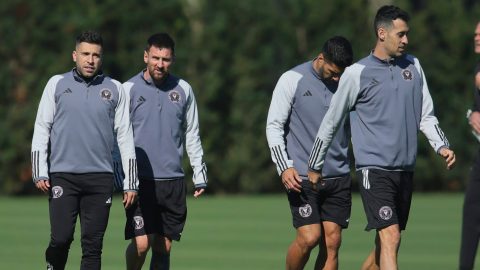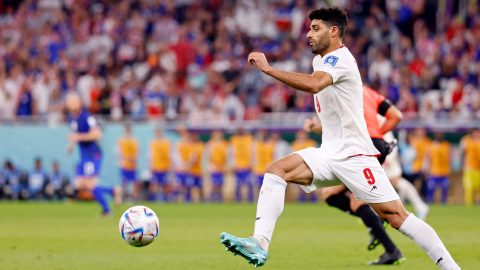 RIO DE JANEIRO — Soccer’s governing body has no plans to cancel the Confederations Cup in Brazil despite the violent anti-government protests spreading across the country.
RIO DE JANEIRO — Soccer’s governing body has no plans to cancel the Confederations Cup in Brazil despite the violent anti-government protests spreading across the country.
An estimated 1 million protesters took to the streets in more than 80 cities on Thursday night in the biggest show of anger yet against the government, which is being accused of corruption, high prices and a lack of investment in public services.
“At no stage, I repeat at no stage, has FIFA, the Local Organizing Committee, nor the federal government discussed or considered canceling the Confederations Cup,” said FIFA spokesman Pekka Odriozola.
He told a news briefing the eight teams involved in the tournament were being kept updated about the security situation in Brazil.
“We have not received any request to leave from any teams,” said Odriozola, rejecting speculation that the Italian team had asked to leave. “We support and we acknowledge the right to free speech and the right to demonstrate peacefully. We condemn any form of violence.”
Italian soccer federation vice president Demetrio Albertini, who is leading the team’s Confederations Cup delegation, told Italy’s ANSA news agency: “We have never even contemplated withdrawing from the Confederations Cup.”
“That is completely made up. We are upset about what is happening here in Brazil, but our security is guaranteed with great professionalism and we’re not worried.”
Local organizing committee spokesman Saint-Clair Milesi said an empty bus carrying FIFA logos had been one of several parked vehicles attacked with stones during protests in the coastal city of Salvador on Thursday. Brazil is scheduled to play Italy there on Saturday, and Japan will play Mexico in Belo Horizonte. Both cities have seen violent protests in recent days.
Despite a heavy police presence, all eight games so far have been played in a party atmosphere with large crowds and no trouble.
On Friday, some city centers in Brazil were still smoldering after a night that shocked the nation: 1 million anti-government protesters took to the streets in scores of cities, with clusters battling police and destroying swaths of storefronts and government buildings.
President Dilma Rousseff called an emergency meeting about the protest with top Cabinet members Friday, after a largely silent and much criticized response to some of the biggest demonstrations seen in this 192 million-person country in decades.
There were growing calls on social media and in mass emails for a general strike next week. A strike would impact the Confederations Cup, which ends June 30.
Odriozola said FIFA would continue to monitor the disturbances in Brazil, but added it had full confidence in security arrangements.
The Confederations Cup is a test event for the 2014 World Cup, in which 32 teams will play in the sport’s showcase tournament.
Some protesters have denounced the billions of public money spent on stadiums in advance of the World Cup and the 2016 Olympics in Rio.
The government is projecting that $13.3 billion will be spent on stadiums, airport renovations and other projects for the World Cup, with an estimated $3.5 billion on venues.
“We want hospitals and schools in FIFA standards,” read one banner outside the Maracana Stadium in Rio on Thursday before the Spain-Tahiti match.
FIFA President Sepp Blatter has urged protesters not to “use football to make their demands heard.”
Blatter surprised the Brazilian government by unexpectedly leaving Brazil this week to go to Turkey for the Under-20 World Cup. He’s expected back in Brazil on June 25 for the semifinals and final of the Confederations Cup.



